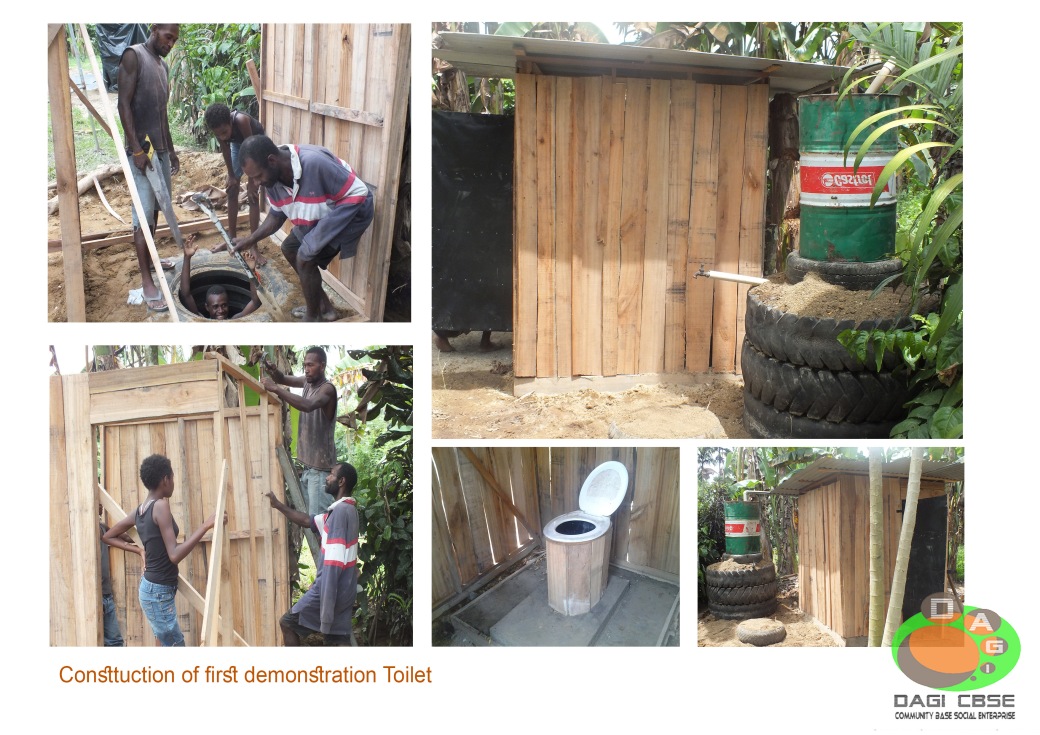 Frank Mackson is a retired teacher who lives in Dagi community in Kimbe. His pit toilet was almost full and he needed a new toilet. Live & Learn has been working with community members in Dagi to establish a community-based sanitation enterprise. Frank was aware of the enterprise and had also read a copy of Live & Learn’s Clean Environment manual. He approached the sanitation enterprise to talk about building a new ventilated improved pit toilet that used recycled materials. Together they worked on the design, and then Frank purchased or provided all the materials and paid a construction service fee to Dagi Sanitation Enterprise.
Frank Mackson is a retired teacher who lives in Dagi community in Kimbe. His pit toilet was almost full and he needed a new toilet. Live & Learn has been working with community members in Dagi to establish a community-based sanitation enterprise. Frank was aware of the enterprise and had also read a copy of Live & Learn’s Clean Environment manual. He approached the sanitation enterprise to talk about building a new ventilated improved pit toilet that used recycled materials. Together they worked on the design, and then Frank purchased or provided all the materials and paid a construction service fee to Dagi Sanitation Enterprise.
Frank’s family members got to work digging the new hole for the toilet, and then the construction was done by the Dagi Sanitation Enterprise staff. An innovative hand-washing system was also installed by using a recycled drum raised on recycled truck tyres to catch rainwater from the roof of the toilet shelter.
As part of Dagi community, Frank is happy for his toilet to be a demonstration toilet that other families can look at it as part of deciding how to upgrade their own toilets, or build their first toilet. Frank is working with the Dagi Sanitation Enterprise to share the material and construction costs for his new toilet. Frank’s toilet is having a positive impact already, with the sanitation enterprise receiving numerous requests for more information. Plans are now being made for the design and materials to construct a low cost flush toilet. Live & Learn is observing that the preference in this community seems to be for families to gather or purchase their own materials and then pay Dagi Sanitation Enterprise to construct the toilet. This means that the design process with each customer is very important, so that the customer knows what materials they need to find or buy. Look out for future news from Dagi Sanitation Enterprise in Kimbe!
Live & Learn is implementing the Western Pacific Sanitation Marketing & Innovation Program in Kimbe with funding from the Australian government through the Civil Society WASH Fund.
